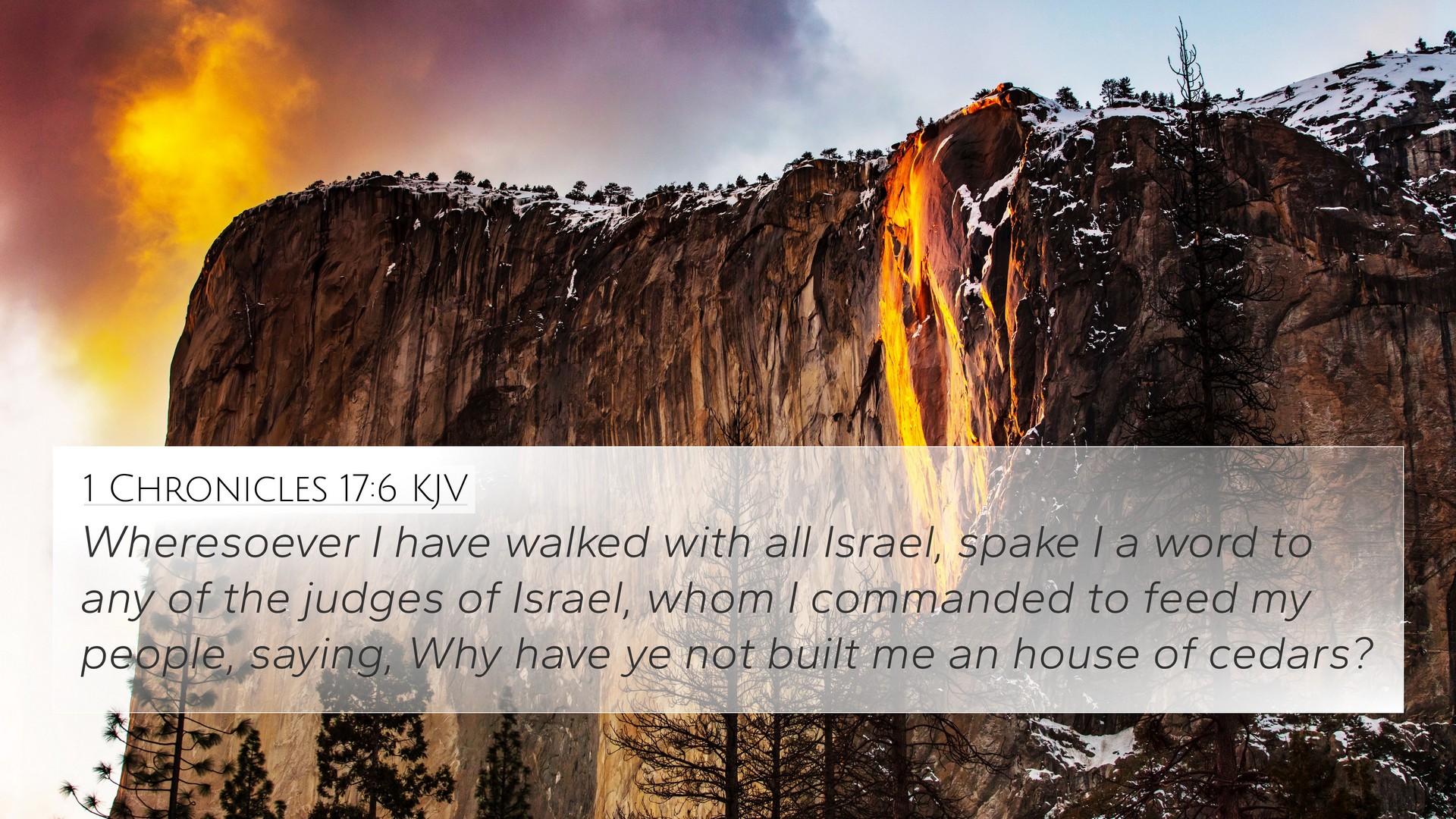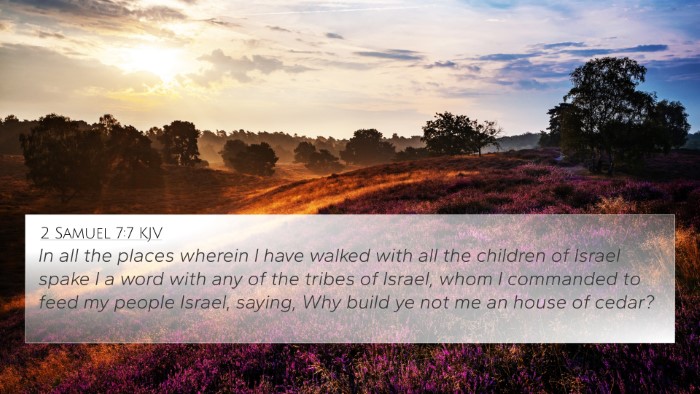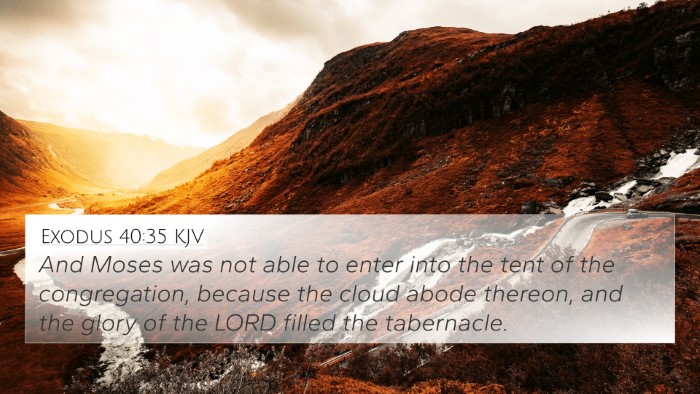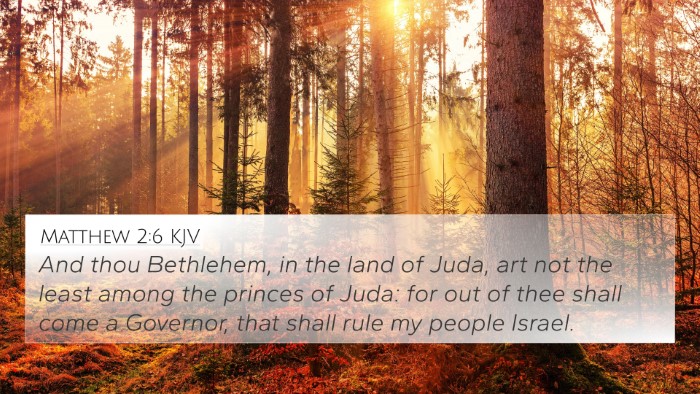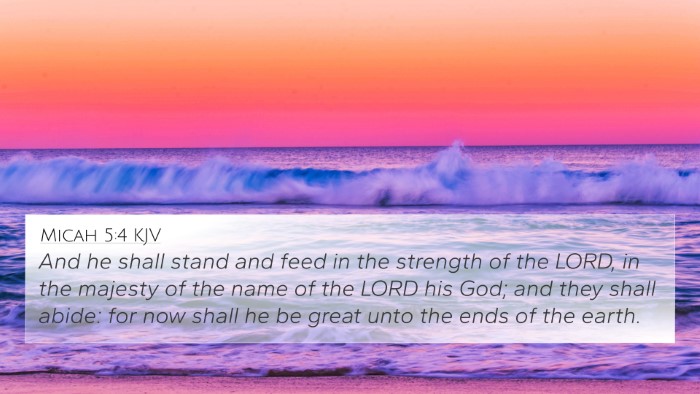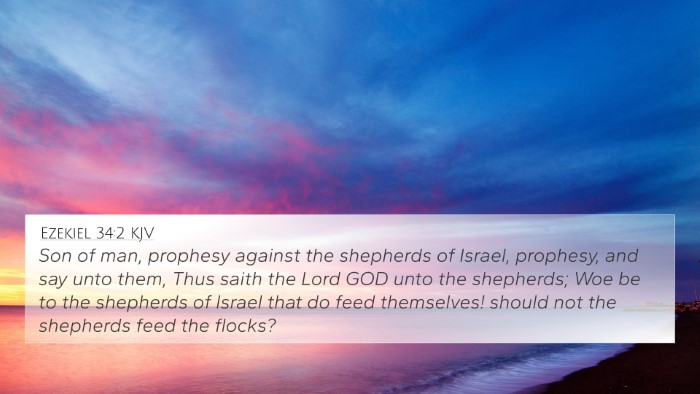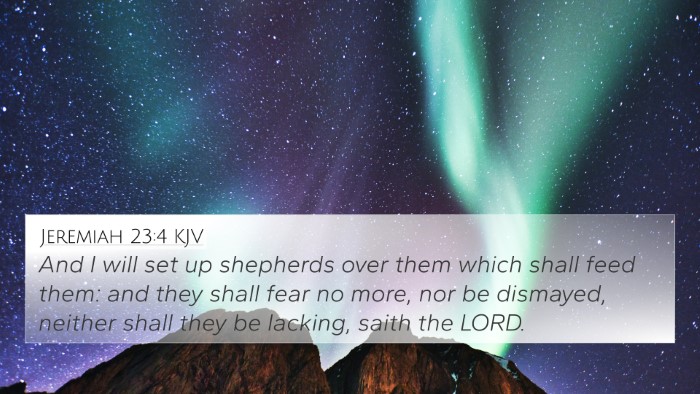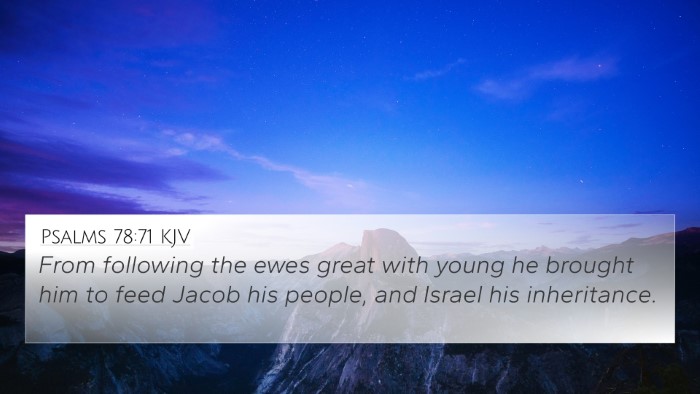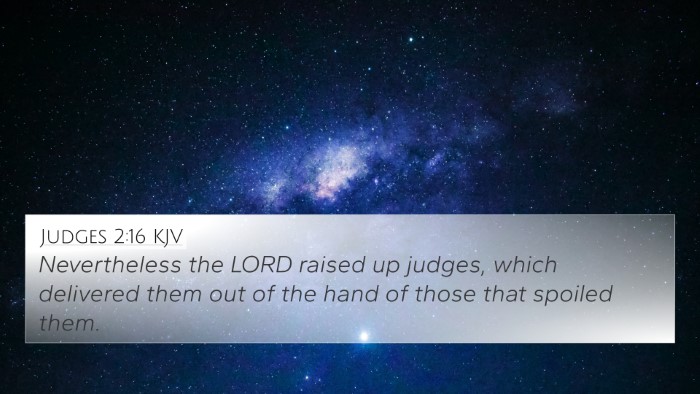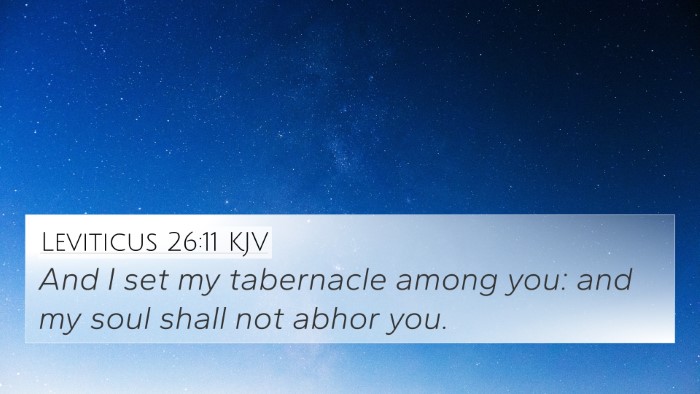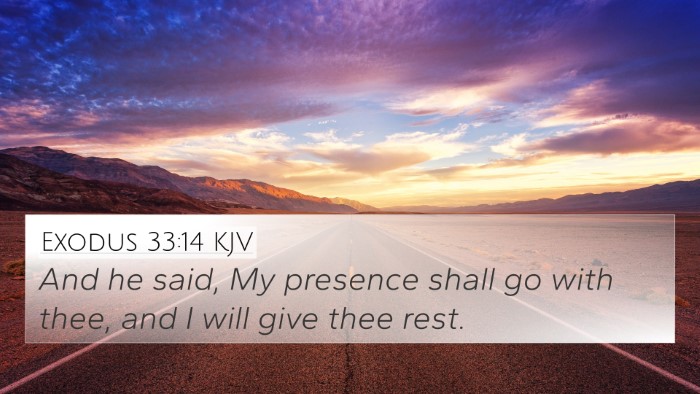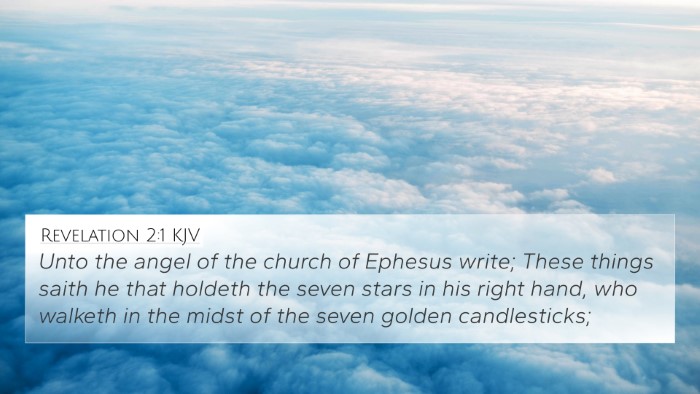Understanding 1 Chronicles 17:6
In this passage, God is speaking through the prophet Nathan, reflecting on the significance of Israel's journey and the divine guidance provided throughout their history. The verse states:
"In all the places wherein I have walked with all Israel, spake I a word with any of the judges of Israel, whom I commanded to feed my people, saying, Why have ye not built me an house of cedars?"
Verse Analysis
This scripture emphasizes God’s authority and the covenant relationship established with His people. Through divine revelation, He is addressing David, who desires to build a temple for the Lord. However, God questions why He had not demanded such a structure during the times He led them through the wilderness and into the Promised Land.
Commentaries Insights
- Matthew Henry:
Henry posits that God is stating His right to choose how He is worshipped and indicating His discomfort with a temple built of materials when His presence was with the people in the wilderness. He points out that God's walking among the people was sufficient and that the relationship was not contingent upon a physical structure.
- Albert Barnes:
Barnes elaborates on how God had always been with Israel, indicating that His provision and leadership did not necessitate a grand temple. He suggests this verse demonstrates God's desire for relationship over ritual and physical location, portraying the intimacy of God's connection with His people.
- Adam Clarke:
Clarke emphasizes the historical context, noting that the judges were appointed by God and were tasked with spiritual leadership, similar to a shepherd's role with their flock. He highlights that God(s question about building a house suggests a divine preference for mobile worship rather than fixed structures.
Connections Between Bible Verses
This verse can be cross-referenced with several important passages in the Bible, demonstrating the thematic continuity of God's intentions and His relationship with His people:
- Exodus 25:8-9: God commands Moses to build a sanctuary, signifying God's presence among His people.
- 1 Samuel 8:7: This passage highlights the people's rejection of God’s direct rule, leading to their desire for a king, showcasing their longing for structure and authority.
- Psalm 132:5: The psalmist recalls the vows of David to establish a place for God, indicating the historical longing for a temple.
- Acts 7:48-50: Stephen mentions that God does not dwell in temples made by hands, supporting the notion of God's transcendency and presence being with His people instead.
- Hebrews 9:24: The scripture reiterates that Christ entered a heavenly sanctuary, contrasting earthly temples and emphasizing the spiritual reality of God's presence.
- 2 Samuel 7:5-7: God challenges David’s assumption about building Him a house, reinforcing that He has been with His people without such demands.
- Isaiah 66:1-2: God declares that heaven is His throne and earth His footstool, illustrating the inadequacy of physical structures in comparison to divine majesty.
- John 4:21-24: Jesus teaches the Samaritan woman about true worship being in spirit and truth, indicating a shift away from physical worship spaces.
- Revelation 21:3: The ultimate fulfillment of God's presence among His people signifies a new covenant where God dwells fully with humanity.
- Galatians 4:14: Paul reminds believers of their rich relationship with God transcending traditional structures, pointing towards a spiritual family.
Thematic Bible Verse Connections
The major theme resonating from 1 Chronicles 17:6 centers on the nature of God’s presence and guidance, showing that it is not confined to a physical temple. This leads to a deeper understanding of how God interacts with humanity throughout scriptures, emphasizing that:
- God seeks relationship: He values the hearts of His people over rituals or constructs.
- Worship effectiveness is rooted in authenticity: True worship arises from a heart positioned in faith, not confined by location.
- God's sovereignty and guidance: His presence leads His people, forming their identity and purpose.
Conclusion
The verse can be viewed as an essential reflection on God's character and His expectations for worship. It emphasizes that the relationship with Him is far more significant than any physical representation, guiding believers today to understand the implications of worship in spirit and truth, sustained by the overarching narrative of scripture.
Further Study and Cross-Referencing Tools
Utilizing tools for Bible cross-referencing, such as a Bible concordance or Bible cross-reference guide, aids in connecting various scriptures that pertain to God’s presence and worship. A comprehensive study of Bible references allows believers to engage in deeper theological discussions, enhancing their understanding of key biblical themes.
